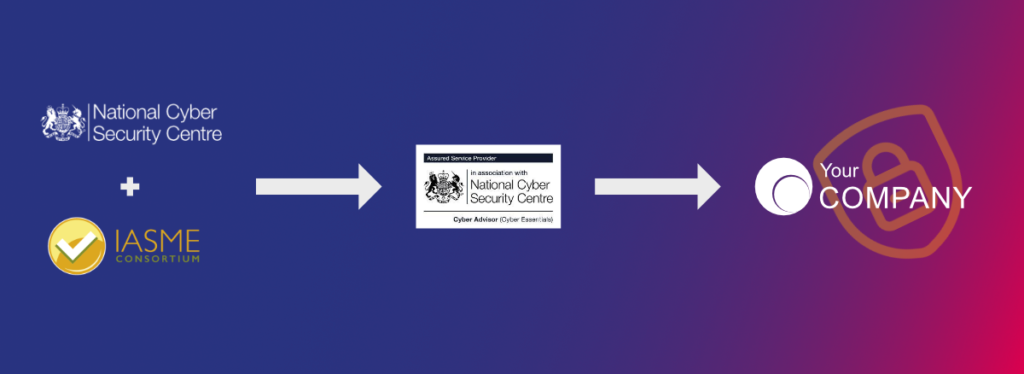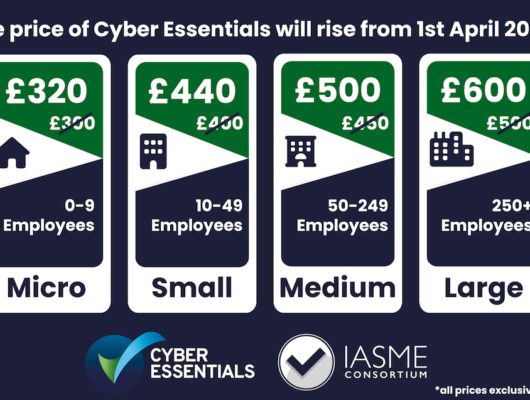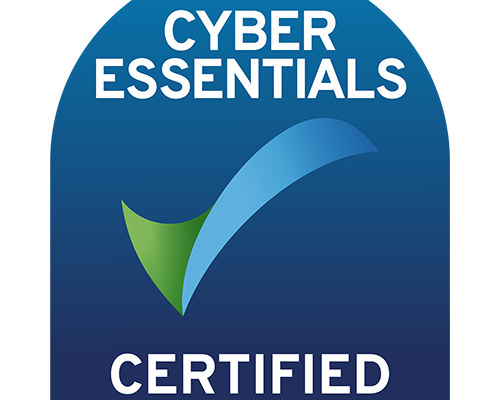
On the 5th June 2014, the UK government reshaped their advice on cyber security, introducing “Cyber Essentials” – a self-assessment scheme aimed at improving the cyber security of small and medium British businesses. Nine years later, this certification has helped over 100,000 businesses enhance their cyber security measures. But what exactly is a Cyber Security self-assessment, and how can it benefit British companies globally?
Components of Cyber Essentials Certification
Cyber Essentials certification consists of two parts: an internal self-assessment and an external technical examination, known as Cyber Essentials Plus. The process begins with the company filling out the Cyber Essentials questionnaire. This jargon-free document ensures accessibility for all businesses, regardless of technical expertise. Cyber Essentials Plus, on the other hand, involves tests conducted by external technical examiners to identify and rectify cyber security weaknesses before malicious hackers exploit them. To apply for Cyber Essentials Plus, the business must first attain a Cyber Essentials certification.
Major Areas Addressed in Cyber Essentials Certification
To achieve Cyber Essentials certification, against the latest version (Montpelier, April 2023), businesses must address five crucial areas: Firewalls, Secure Configuration, Security Update Management, User Access Controls, and Malware Protection. These areas mirror the most common types of cyber-attacks. By implementing security measures in these domains, businesses can significantly reduce their vulnerability, decreasing the risk of cyber-attacks by up to eighty percent.
The Approval Process and Certification Issuance
After completing the required questions, the submission undergoes approval. Accredited Cyber Essentials experts, who themselves are accredited by IASME (Information Assurance for Small and Medium Enterprises) which are directly partnered with the NCSC (National Cyber Security Centre), review the submissions, with each level ensuring the client gets the best advice possible.

Once approved, the business is awarded a Cyber Essentials certificate, valid for twelve months. This annual renewal provides opportunities for businesses to review and enhance their security posture, ensuring continuous improvement. Furthermore, it provides IASME time to update the question set, further improving security based on trends in cyber security and provide the most up-to-date security advice.
Benefits of Cyber Essentials Certification
Cyber Essentials certification opens doors to various benefits. Beyond improved cybersecurity, successful applicants based in the UK with an annual turnover of less than £20m are offered free cyber insurance. Additionally, businesses in government and NHS supply chains are now mandated to have Cyber Essentials, creating new opportunities, you can read more about that, here. Achieving Cyber Essentials certification also allows businesses to pursue Cyber Essentials Plus, where external security teams rigorously test all aspects of the organisation, offering enhanced protection against malicious attacks.
In an increasingly digital landscape, Cyber Essentials certification stands as a beacon of security for UK businesses. By embracing this vital framework, companies not only bolster their cyber defenses but also gain access to exclusive benefits, from free insurance to lucrative government tenders. As cyber threats evolve, Cyber Essentials offers a dynamic shield, ensuring businesses remain resilient and competitive. Embrace the power of Cyber Essentials certification today, and pave the way for a safer, more prosperous future in the digital realm.
Ready to fortify your business against cyber threats?
Don't wait! Risk Evolves is a National Cyber Security Centre accredited Assured Service Provider for Cyber Essentials accreditation.
Contact our experts at Risk Evolves. Don't wait, secure your business today!






